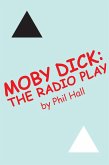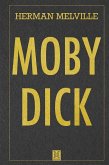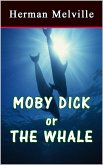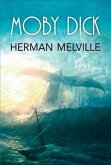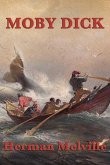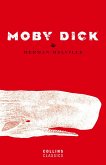In Moby-Dick, Melville employs stylized language, symbolism, and metaphor to explore numerous complex themes. Through the journey of the main characters, the concepts of class and social status, good and evil, and the existence of God are all examined, as the main characters speculate upon their personal beliefs and their places in the universe. The narrator's reflections, along with his descriptions of a sailor's life aboard a whaling ship, are woven into the narrative along with Shakespearean literary devices, such as stage directions, extended soliloquies, and asides. The book portrays destructive obsession and monomania, as well as the assumption of anthropomorphism.
Moby-Dick has been classified as American Romanticism. It was first published by Richard Bentley in London on October 18, 1851, in an expurgated three-volume edition titled The Whale, and weeks later as a single volume, by New York City publisher Harper and Brothers as Moby-Dick; or, The Whale on November 14, 1851. The book initially received mixed reviews, but is now considered part of the Western canon, and at the center of the canon of American novels.
Moby-Dick begins with the line "Call me Ishmael." According to the American Book Review's rating in 2011, this is one of the most recognizable opening lines in Western literature.
Dieser Download kann aus rechtlichen Gründen nur mit Rechnungsadresse in A, B, BG, CY, CZ, D, DK, EW, E, FIN, F, GR, H, IRL, I, LT, L, LR, M, NL, PL, P, R, S, SLO, SK ausgeliefert werden.



